For anyone who’s lived with, is currently living with or has witnessed someone close to them suffer it’s not going to come as any surprise that the development and maintenance of anorexia nervosa is strongly influenced by factors other than a psychological drive to be thin or a fear of weight gain.
One important factor contributing to the development of anorexia is actually our very DNA and there is now a number of studies showing a strong genetic component to this disease.
What this means is that in no way, shape or form is anorexia a choice. Which as I said is not revolutionary information to anyone who’s had anything to do with this illness but for those who haven’t it may well be.
In any case it is validation that the struggle is real and not “all in your head” and most importantly an opportunity for the stigma and shame to be removed. This, in my eyes would be the most exciting thing to come out of these findings because more than anything this would clear the way for people to seek as well as receive effective treatment and this means faster healing and more life lived! (I honestly believe the world is losing some of the greatest minds to this illness and it’s all frustratingly needlessly so).
Many (Most?) People Are Fundamentally Misinformed About What Anorexia Is
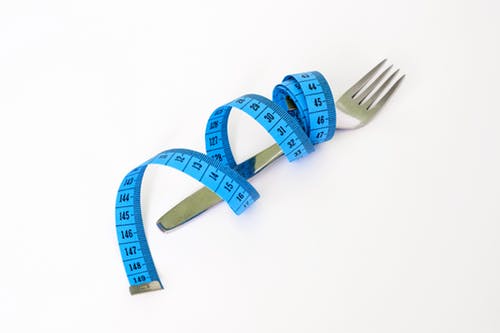
When I was sick one of the main things which prevented me from getting treatment was that I simply didn’t identify with being anorexic.
Why didn’t I identify with being anorexic? For a number of reasons but mostly the fact that I didn’t fit the distinguishing criteria of what I thought anorexia was which was what society and even health professionals insisted anorexia was – the desire to be thin.
Not identifying with anorexia, not meeting health professionals ideas of anorexia, or google search criteria and placing my hopes in people who were fundamentally misinformed and ill equipped to help meant I spent 15 years in what I now see as unnecessary pain (and although I use the word pain it is only because I know of no word which could do the unrelenting torment of what it means to live with anorexia justice). 15 years of my life was ruled by something which was not me. That’s over half my life I will never get back.
Which is why it is now so important to me to share practical information that can help others recover far more quickly than I got the chance to. Understanding now what anorexia is both from what I learned intimately through my illness and since I know there was never any question as to whether or not I had this illness. I just didn’t identify with it because most peoples (health professionals included) ideas of what it was were quite frankly wrong.
There Was This One Thing

Many health professionals told me I didn’t have anorexia because I had no desire to be thin, I didn’t believe I had anorexia because I didn’t want to be thin and I didn’t identify with any of the other things which you were supposed to be if you were “anorexic”.
But there was this one thing. I couldn’t gain weight. At least not without immense effort, inner turmoil and levels of distress that made any weight gain I did manage only ever a fleeting experience because what I did have was an all-consuming fear of eating.
Not Eating Felt “Normal”

My body completely unintentionally on behalf of my conscious and logical mind had learned to override my hunger signals and associate eating and even the thought of eating with what I can only describe as nothing short of hell.
It was never an effort. Not in the way as if I now imagine trying to not eat or lose weight. When I was sick, I wasn’t trying to not eat, and I certainly wasn’t trying to lose weight I couldn’t even think that far ahead to consequences to be honest it was all consuming fear in the moment to moment that controlled me. Essentially it didn’t just feel normal, it was my normal. There was always a reason I couldn’t eat and there was always a reason I had to run. All of which were just variations on a constant theme and that was at the core – I just knew it was wrong to do anything else.
Fear of Weight Gain Is A Logical Explanation for An Illogical Fear

For some people the preoccupation with thinness is not even a component and for those where it is it is always a distraction from or a way to “cope” with the real issues.
The fear of weight gain is a justification of the intense feelings of not wanting to eat because that’s confusing af and something our minds have to make sense of but the reality is the explanation comes second to the fear. Let me explain this because it’s important to understand it is the need of our logical and rational mind to make sense of why these confusing feelings are arising that we come up with “fear of weight gain” but fear of weight gain is not the cause of the feelings or the behaviours because no healthy person no matter how determined they are to be thin can starve themselves to death. That’s a disease that does that.
Understanding Does Not Lead to Change
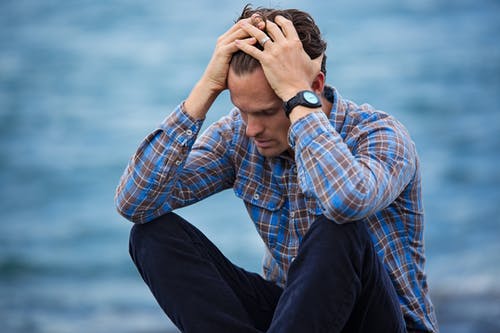
Even when I knew intellectually that my body was giving up, my organs were shutting down, my body temperature and blood pressure were impossibly low and my electrolytes dangerously out of balance aka I was not in the dark or in any way deluded over the fact that I was going to die I couldn’t change.
It wasn’t some misguided attempt at being “healthy”, I wasn’t even punishing myself it really was just me and I truly believe the genetic basis of anorexia is now giving real insight as to why this is the case. That is why it feels more normal and natural for someone with anorexia to starve than to eat (Just to clarity I am not saying starving feels good, but I am saying it doesn’t feel like a “choice”). Until treatment recognises this it is always going to fail people for the simple fact that it’s targeted at “fixing” something which is not the problem. Force feeding, disempowering the sufferer and threats and are all archaic (and to me say more about the people delivering them than anything else).
What The Research Says
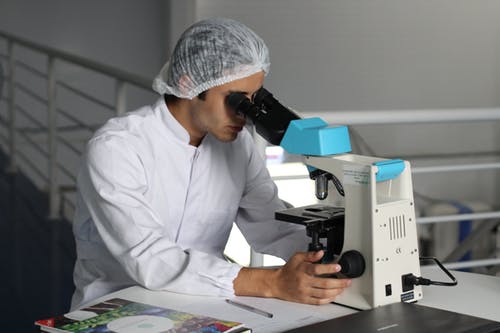
The latest research into anorexia clearly indicates there are specific genes which influence the “likelihood” of someone developing anorexia nervosa or not.
One recent study compared the genomes of almost 17 000 people with anorexia to the genomes of over 55 000 healthy people and found significant genomic differences between people with anorexia and healthy people in eight areas (or loci)1. This is pretty indicative that these areas are associated with risk of developing anorexia and these areas are also involved with energy and fat metabolism, other psychiatric problems and physical activity.
What These Findings Mean
Some people have a higher genetic risk of developing anorexia nervosa then others.
What These Findings Do Not Mean
Having genes associated with increased risk means you are doomed to develop anorexia.
Why not? Because there are other “ingredients” necessary to trigger the onset of the illness including a period of energy deficit (aka lower food intake than is needed to meet your energy needs).
It appears people with a genetic predisposition towards anorexia respond to a negative energy balance different than those who do not have a genetic predisposition. (If you want to understand why these differences may exist, click here to read my earlier blog post where I covered this in more detail).
How Can We Use This Information to Improve Treatment?

The most important question to ask is how can we use this information (i.e that anorexia is not a purely psychiatric illness, some people are at higher risk due to their genetics and disease onset can be triggered by an energy deficit without a desire to be thin) to best help people recover and live their lives?
The answer is the same as that of any other truly useful treatment for any illness and that is as a means of empowering the person suffering because in order to achieve any form of long term, sustainable and meaningful recovery (surely the ultimate goal of any treatment) it is necessary to facilitate the person in recovery to develop a connection to and trust in themselves.
Two Little Worries
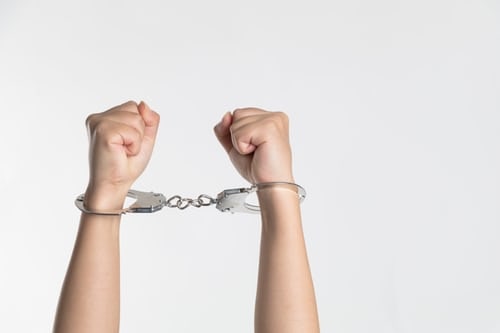
As wonderful as I find all this research on the genetics of anorexia, I have two little worries with regards to how the genetic information could be taken.
Firstly, I worry that people may view it as out of their hands and there’s nothing they can do because it’s in their genes and genes are destiny and secondly if pharmaceutical companies were to begin to develop drugs which target these genes.
Why would I be worried about this? because both scenarios further disconnect people from themselves and their ownership and control over their healing.
Our genes are not the be all and end all of our health. They are a small part and if people misinterpret that their genes means they will get sick or that they are helpless against getting better this is clearly problematic (if you are interested in this and want a simple explanation of epigenetics and how our actions have more impact over our health than what’s in our DNA I absolutely encourage you to read this post).
With regards to drugs I fully embrace the fact that while drugs may very well be a viable short term option because they are a means of granting someone who is completely overwhelmed a reprieve and this is necessary to making any change for growth they will never be a long term option for full recovery from anorexia.
Why? Because Full recovery goes beyond treatment, it goes beyond the removal of the disease from your life. Recovered (the whole point of recovery!) is about living a life of progress, learning and developing and this can only come after someone has developed their self-identity and the ability to trust in themselves not in the reliance on drugs, therapy or any other outside force (reliance is different to support). Therefore, any therapy which has as its underpinnings the perpetuation of self-mistrust – be this current treatment which is largely based around removing the power from the sufferer or the future possibility of drugs – will be ineffective because they are the opposite of what is needed. Long term and genuine health is always about increasing self-efficacy, self-reliance and choice and this is true irrespective of whether the person is in recovery from anorexia or not.
Take Home Points

Some people are at a higher risk of developing anorexia than others and part of this is due to a genetic predisposition.
This does not mean that for these people it is inevitable they will get sick it means that in conjunction with environmental triggers including a period of inadequate food intake the chances are higher. Rather than lament this we can use this information to remove the stigma and shame associated with what it means to be “anorexic” and clear the way for people to receive the treatment they need.
Finally, treatment is your choice. Above all else, please never lose sight of this fact. Which means choose people who are in it for you.
Choose to work with people who are in your recovery for the you that you will be on the other side because anorexia has historically been a very confusing, complex and complicated illness and the reality is many health care professionals who work in this space are misinformed and no matter how well-meaning misinformation is damaging and at best useless.
If the path you’ve been going down, if the “treatment” you’ve been putting your hopes into hasn’t worked chances are it’s time to try something new. Don’t you dare stop until you find those who facilitate your empowerment, until you back yourself 100%, until you reach your freedom because you are worth it.
With my whole heart I trust you found this information useful and inspiring;
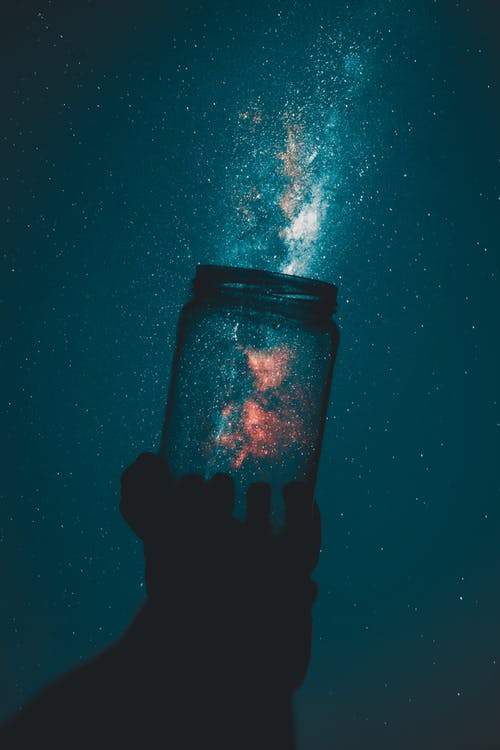
Become Great. Live Great.
Bonnie.
Reference
Hunna J. Watson, Zeynep Yilmaz, Laura M. Thornton, Christopher Hübel, Jonathan R. I. Coleman, Héléna A. Gaspar, Julien Bryois, Anke Hinney, Virpi M. Leppä, Manuel Mattheisen, Sarah E. Medland, Stephan Ripke, Shuyang Yao, Paola Giusti-Rodríguez, Ken B. Hanscombe, Kirstin L. Purves, Roger A. H. Adan, Lars Alfredsson, Tetsuya Ando, Ole A. Andreassen, Jessica H. Baker, Wade H. Berrettini, Ilka Boehm, Claudette Boni, Vesna Boraska Perica, Katharina Buehren, Roland Burghardt, Matteo Cassina, Sven Cichon, Maurizio Clementi, Roger D. Cone, Philippe Courtet, Scott Crow, James J. Crowley, Unna N. Danner, Oliver S. P. Davis, Martina de Zwaan, George Dedoussis, Daniela Degortes, Janiece E. DeSocio, Danielle M. Dick, Dimitris Dikeos, Christian Dina, Monika Dmitrzak-Weglarz, Elisa Docampo, Laramie E. Duncan, Karin Egberts, Stefan Ehrlich, Geòrgia Escaramís, Tõnu Esko, Xavier Estivill, Anne Farmer, Angela Favaro, Fernando Fernández-Aranda, Manfred M. Fichter, Krista Fischer, Manuel Föcker, Lenka Foretova, Andreas J. Forstner, Monica Forzan, Christopher S. Franklin, Steven Gallinger, Ina Giegling, Johanna Giuranna, Fragiskos Gonidakis, Philip Gorwood, Monica Gratacos Mayora, Sébastien Guillaume, Yiran Guo, Hakon Hakonarson, Konstantinos Hatzikotoulas, Joanna Hauser, Johannes Hebebrand, Sietske G. Helder, Stefan Herms, Beate Herpertz-Dahlmann, Wolfgang Herzog, Laura M. Huckins, James I. Hudson, Hartmut Imgart, Hidetoshi Inoko, Vladimir Janout, Susana Jiménez-Murcia, Antonio Julià, Gursharan Kalsi, Deborah Kaminská, Jaakko Kaprio, Leila Karhunen, Andreas Karwautz, Martien J. H. Kas, James L. Kennedy, Anna Keski-Rahkonen, Kirsty Kiezebrink, Youl-Ri Kim, Lars Klareskog, Kelly L. Klump, Gun Peggy S. Knudsen, Maria C. La Via, Stephanie Le Hellard, Robert D. Levitan, Dong Li, Lisa Lilenfeld, Bochao Danae Lin, Jolanta Lissowska, Jurjen Luykx, Pierre J. Magistretti, Mario Maj, Katrin Mannik, Sara Marsal, Christian R. Marshall, Morten Mattingsdal, Sara McDevitt, Peter McGuffin, Andres Metspalu, Ingrid Meulenbelt, Nadia Micali, Karen Mitchell, Alessio Maria Monteleone, Palmiero Monteleone, Melissa A. Munn-Chernoff, Benedetta Nacmias, Marie Navratilova, Ioanna Ntalla, Julie K. O’Toole, Roel A. Ophoff, Leonid Padyukov, Aarno Palotie, Jacques Pantel, Hana Papezova, Dalila Pinto, Raquel Rabionet, Anu Raevuori, Nicolas Ramoz, Ted Reichborn-Kjennerud, Valdo Ricca, Samuli Ripatti, Franziska Ritschel, Marion Roberts, Alessandro Rotondo, Dan Rujescu, Filip Rybakowski, Paolo Santonastaso, André Scherag, Stephen W. Scherer, Ulrike Schmidt, Nicholas J. Schork, Alexandra Schosser, Jochen Seitz, Lenka Slachtova, P. Eline Slagboom, Margarita C. T. Slof-Op ‘t Landt, Agnieszka Slopien, Sandro Sorbi, Beata Świątkowska, Jin P. Szatkiewicz, Ioanna Tachmazidou, Elena Tenconi, Alfonso Tortorella, Federica Tozzi, Janet Treasure, Artemis Tsitsika, Marta Tyszkiewicz-Nwafor, Konstantinos Tziouvas, Annemarie A. van Elburg, Eric F. van Furth, Gudrun Wagner, Esther Walton, Elisabeth Widen, Eleftheria Zeggini, Stephanie Zerwas, Stephan Zipfel, Andrew W. Bergen, Joseph M. Boden, Harry Brandt, Steven Crawford, Katherine A. Halmi, L. John Horwood, Craig Johnson, Allan S. Kaplan, Walter H. Kaye, James E. Mitchell, Catherine M. Olsen, John F. Pearson, Nancy L. Pedersen, Michael Strober, Thomas Werge, David C. Whiteman, D. Blake Woodside, Garret D. Stuber, Scott Gordon, Jakob Grove, Anjali K. Henders, Anders Juréus, Katherine M. Kirk, Janne T. Larsen, Richard Parker, Liselotte Petersen, Jennifer Jordan, Martin Kennedy, Grant W. Montgomery, Tracey D. Wade, Andreas Birgegård, Paul Lichtenstein, Claes Norring, Mikael Landén, Nicholas G. Martin, Preben Bo Mortensen, Patrick F. Sullivan, Gerome Breen, Cynthia M. Bulik. Genome-wide association study identifies eight risk loci and implicates metabo-psychiatric origins for anorexia nervosa. Nature Genetics, 2019.




4 thoughts on “Anorexia Is Genetic, So What Do I Do Now?”
Nice blog right here! Additionally your site lots up very fast! What web host are you the usage of? Can I am getting your associate hyperlink on your host? I desire my website loaded up as quickly as yours lol
Hi, thank you for your comment about my blog. I don’t have an associate hyperlink but my website host is Bluehost.
Warmly, Bonnie.
This is very interesting, You’re a very skilled blogger. I’ve joined your feed and look forward to seeking more of your excellent post. Also, I have shared your site in my social networks!
Thank you so much for your lovely words and support Analla. I appreciate you.